PyCon JP 2025 Review
Jaeyeol Lee @kodingwarrior@hackers.pub
Originally, when I would leave event reviews, I tended to write them briefly and very dryly in passing. However, many people who participated in PyCon JP, including those who recently became Twitter friends, have been writing posts. So I wanted to leave a record as both evidence that a Korean attended and as an archive that might be useful to someone.
Warning
Please understand in advance that the content may be somewhat limited due to issues such as lack of energy from excessive drinking the night before (I drank alcohol every day), and not having many photos due to battery drainage.
Deciding to Attend
I've been participating in PyCon KR since around 2016, making this my 10th time, so I've developed quite an affection for the Korean Python community. I've participated as an individual sponsor and operated booths as a community sponsor (vim.kr, fedidev.kr, etc.). Despite my attachment to the Python community in various capacities, I had never participated in one abroad. Since I've spent more than half of my career making a living with Ruby, I did attend RubyKaigi 2023 in Japan last year.
Anyway, although I had been thinking about consistently attending overseas conferences, particularly in Japan, I kept postponing it due to personal matters. Recently, after quitting my job and becoming a free agent, I finally had the opportunity to attend PyCon JP and took the plunge. In terms of my Japanese language skills, while I had cleared all stages in Duolingo, there's quite a gap between that and being able to converse freely. Still... I focused on the significance of participating. (In truth, the temptation from Twitter acquaintances, including Kwonhan, who suggested going to PyCon JP together was too strong to resist.)
So, on August 18th, I went all out and purchased both PyCon JP tickets and flights to Japan.
Before the Event (09/24) ~ PyCon JP Day 0 (09/25)
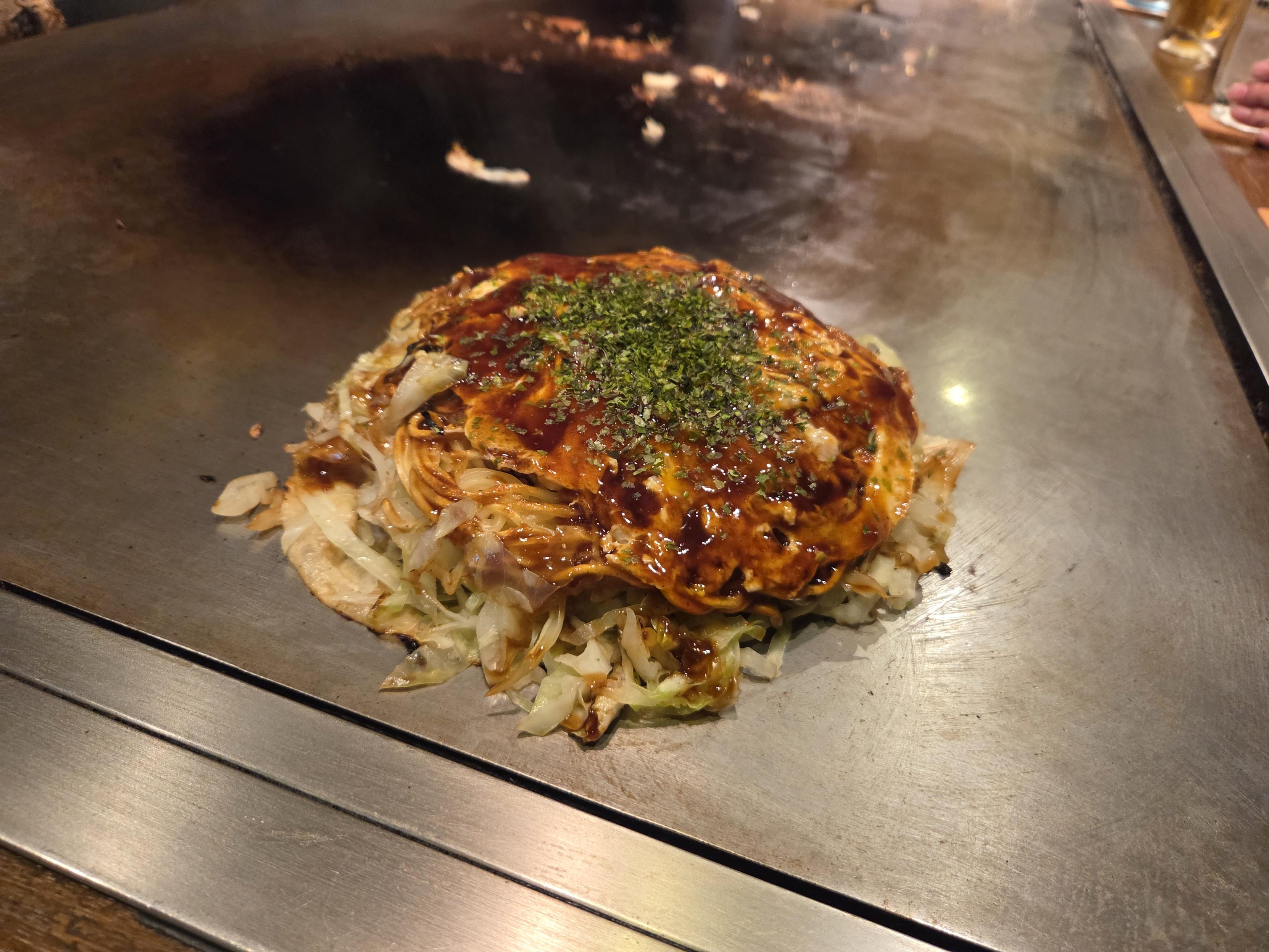
09/24 3 PM, arrived in Hiroshima with Kwonhan Bae (darjeelingt) from Cheongju Airport. 09/24 6 PM, ate okonomiyaki at a place called Kanransha near our accommodation. 09/25 1 PM, spent time with people from Korea including Doyun Kim, Youngeun Lee, and Namsu Hong, eating conger eel rice bowls and visiting the Hiroshima Atomic Bomb Dome.
Then, at 09/25 6:30 PM, I attended the DrinkUp party hosted by Findy. Since my Japanese wasn't good enough for free conversation, I awkwardly communicated in English. The person right in front of me was a data engineer working at Findy. I had written "Vim" in my introduction, so we shared a connection that transcended language barriers.
"Oh, Do you use Neovim?" / "YEAH!!!" / "You also use Wezterm?" / "YEAH!!!" - Findy data engineer's PyCon JP review
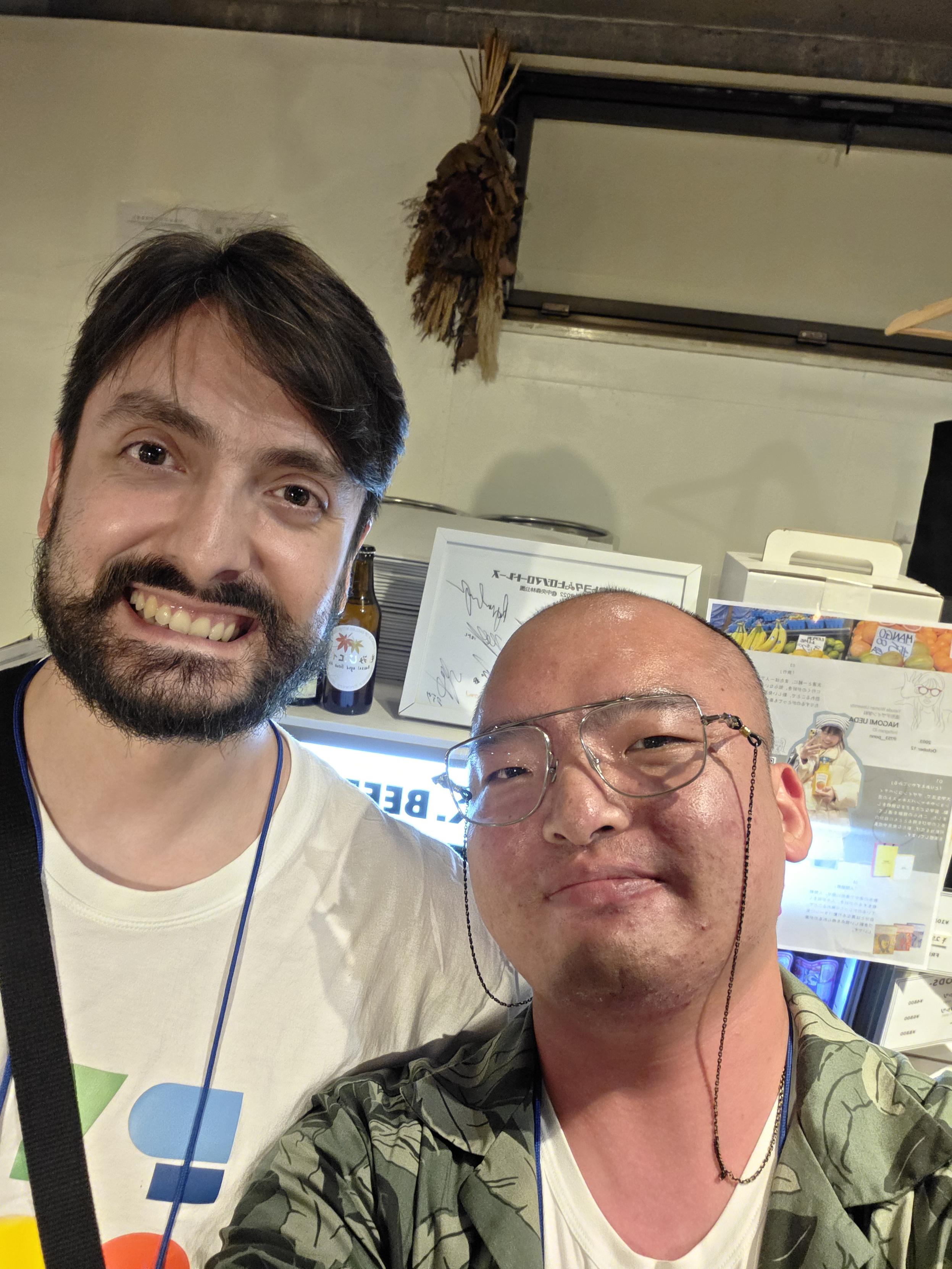
tiangolo, the developer of FastAPI, was also there, and we took a photo together.
For the second after-party, I went to the Drink Up party hosted by the Python Asia Organization. I happened to see tiangolo again and remember talking a lot about Korea.
I also went to a third after-party. I think I was quite drunk by then, but my clearest memory is feeling threatened because the person right next to me was an Emacs user. I also remember that Takanori, who bought me beer at that time, was also an Emacs user.
PyCon JP Day 1 (09/26)
It was the first day of PyCon JP. Perhaps because I drank too much the night before, I woke up late. Feeling that I shouldn't miss the first session, I rushed to the venue.
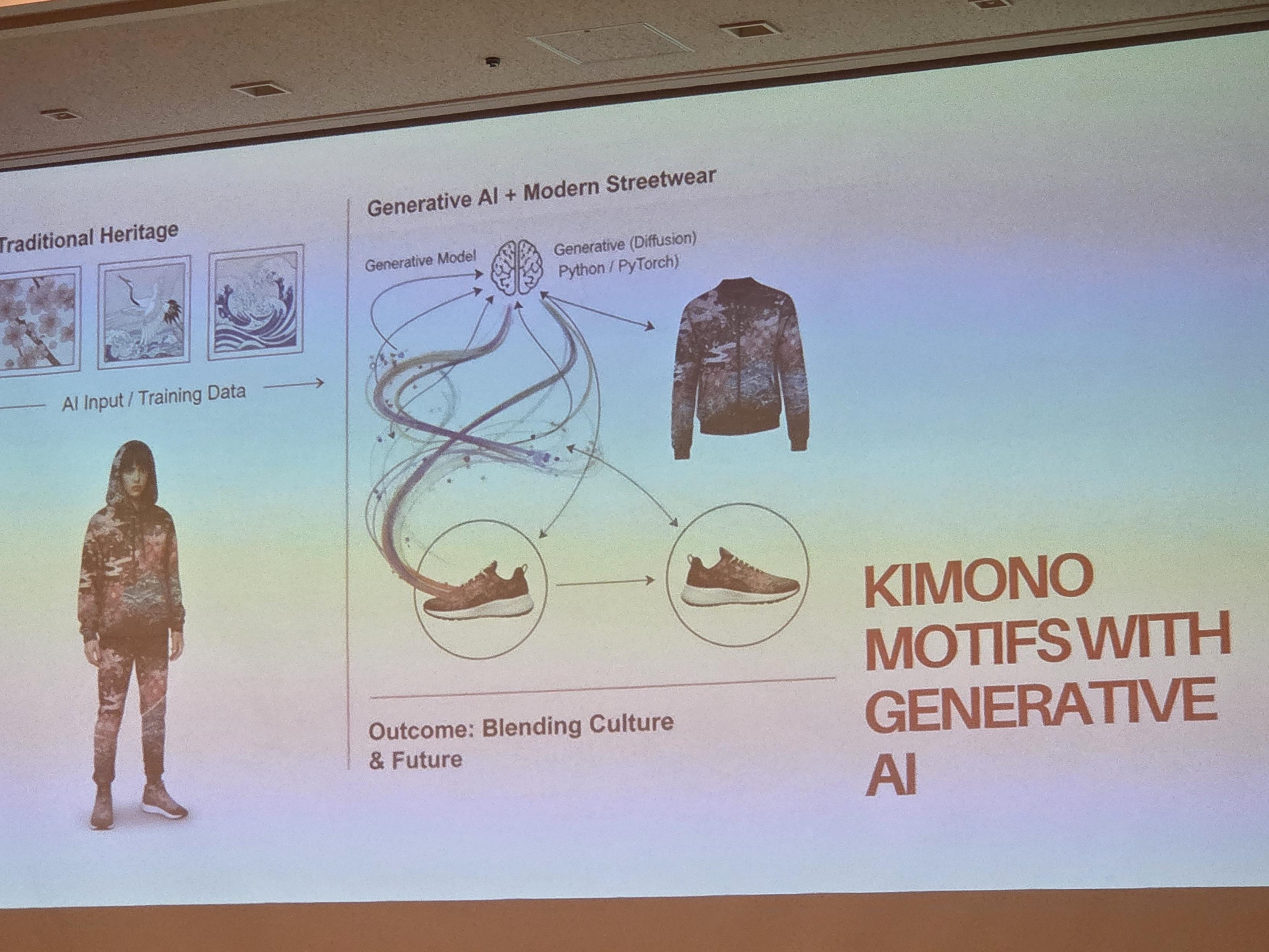
"Dress Code: How Python Writes the Future of Fashion": This was the first session of the event day. I don't remember knowing what it was about beforehand - I just attended with the mindset of "let's listen to any session in English." For such a random choice, the content was quite satisfying. It introduced how Python can be usefully applied in the fashion industry. The presentation covered how to create products using applications like noise generation functions based on sine waves, generative AI, and DSLs for embroidery pattern generation.
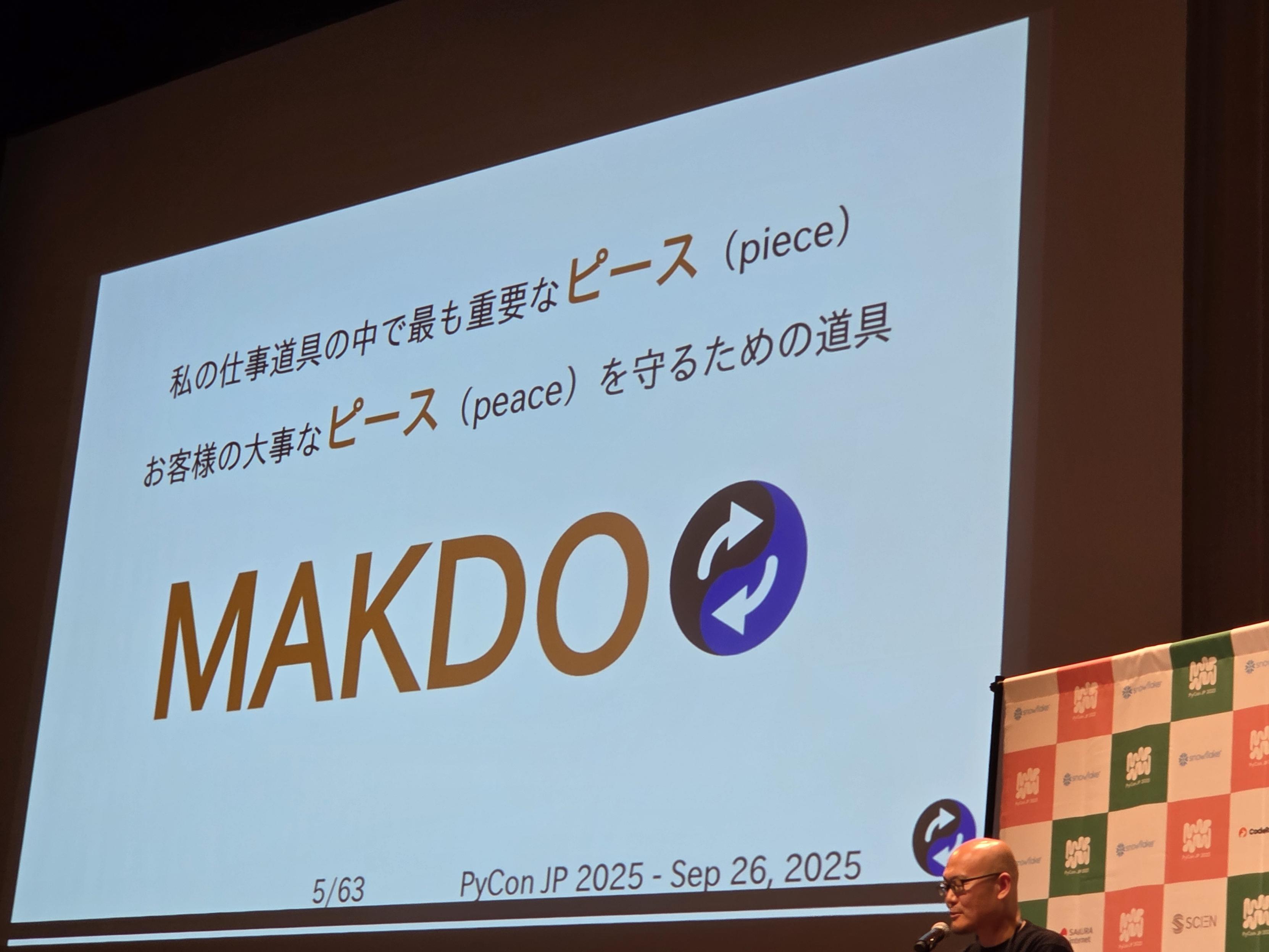
"マイエディタのすすめ" (Recommending My Editor): As a Neovim enthusiast, I think I was drawn to attend this because of the keyword "エディタ" (editor). The presenter had developed "a cross-runtime editor that outputs docx files when writing in markdown format." "Editor development" itself was already an interesting topic to me, but what made it more fascinating was that the presenter's main profession wasn't development - he was a lawyer working in Hiroshima. He shared anecdotes about how he came to build his own tools while working as a lawyer. I missed some parts, but overall it was an enjoyable session. (Editor introduction page)
After this, there didn't seem to be any more sessions that caught my interest, so I mostly wandered around the sponsor booths. Unfortunately, my battery died, so I don't have any photos of this. What a shame.
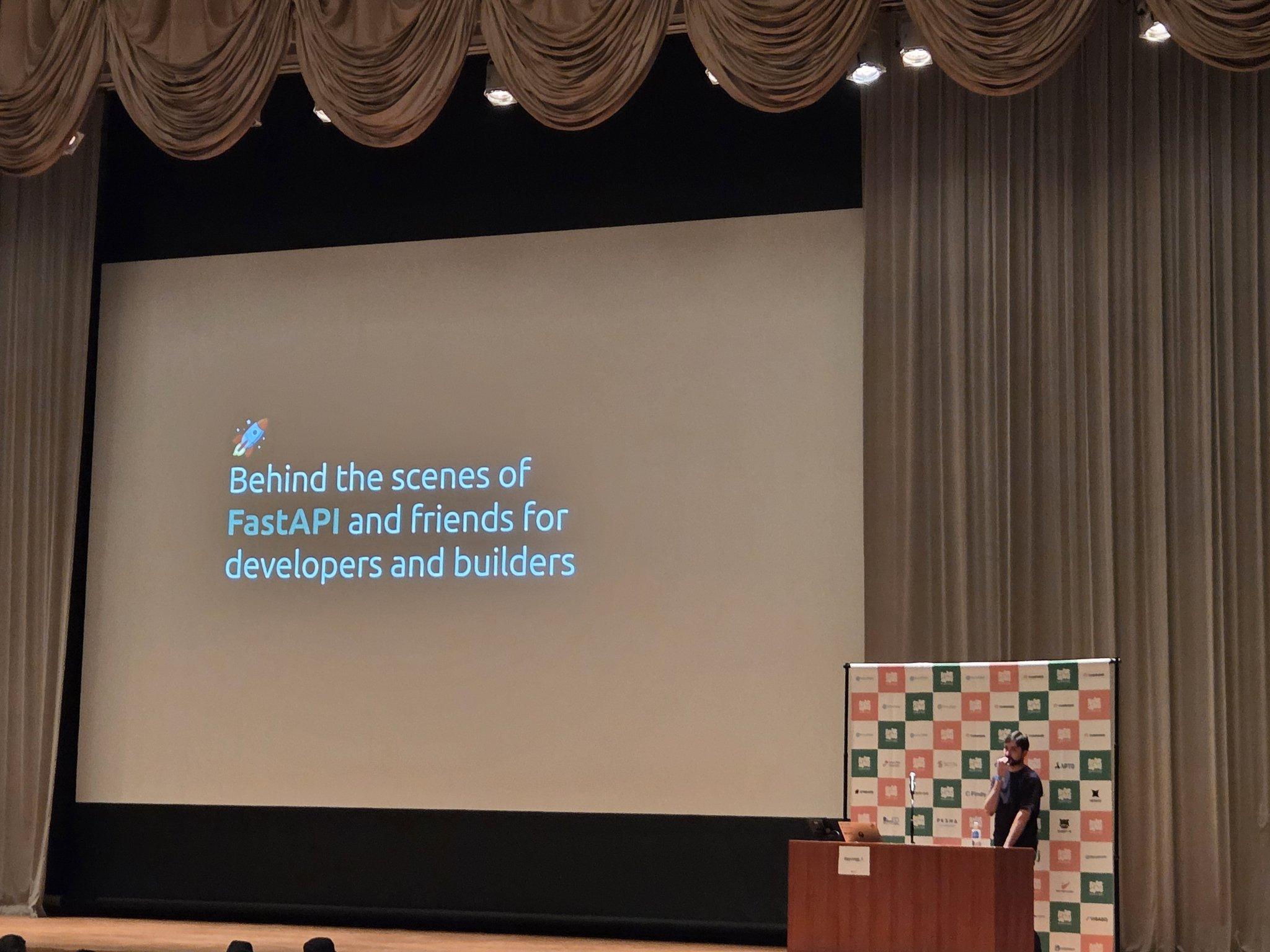
The event concluded with a keynote session by tiangolo, the creator of FastAPI. I gained insight into tiangolo's development philosophy, which had many aspects worth emulating. If there's a memorable quote, it would be "Innovation is a side effect of solving problems."
I also found it unique that the keynote session was placed at the end of the event. (For reference: PyCon KR places keynote sessions at the very beginning of the event, so if you want to attend the keynote, you have to wake up early and rush there.)
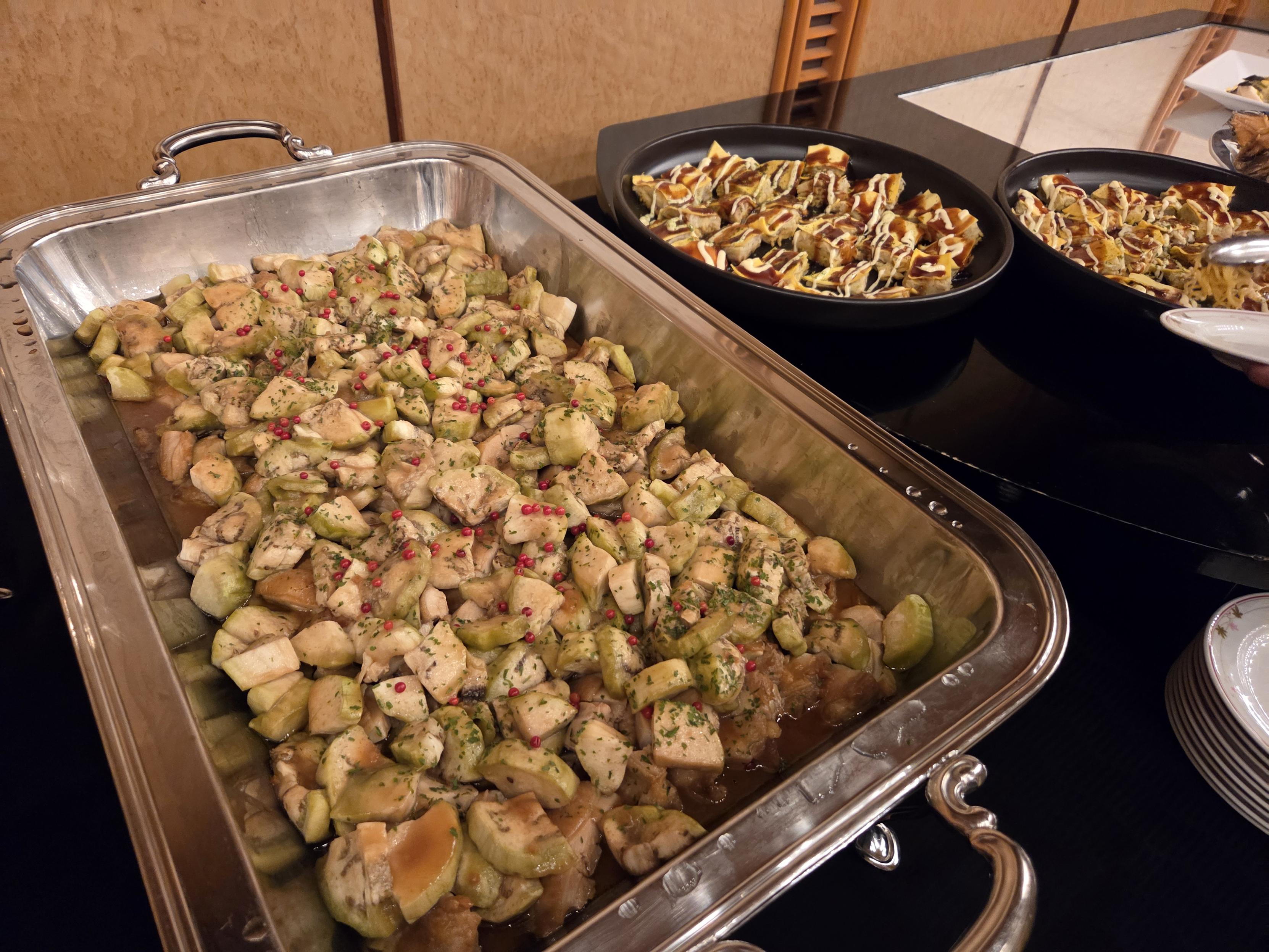
In the evening, I attended the Official Party. Since I hadn't been able to eat much food at the DrinkUp party the night before, I think I frantically loaded up on the buffet food. As for networking... I didn't have much energy that day, so I mostly just listened.
PyCon JP Day 2 (09/27)
It was the second day of PyCon JP. Although I hadn't drunk excessively, I still had a hangover. I ended up being late.
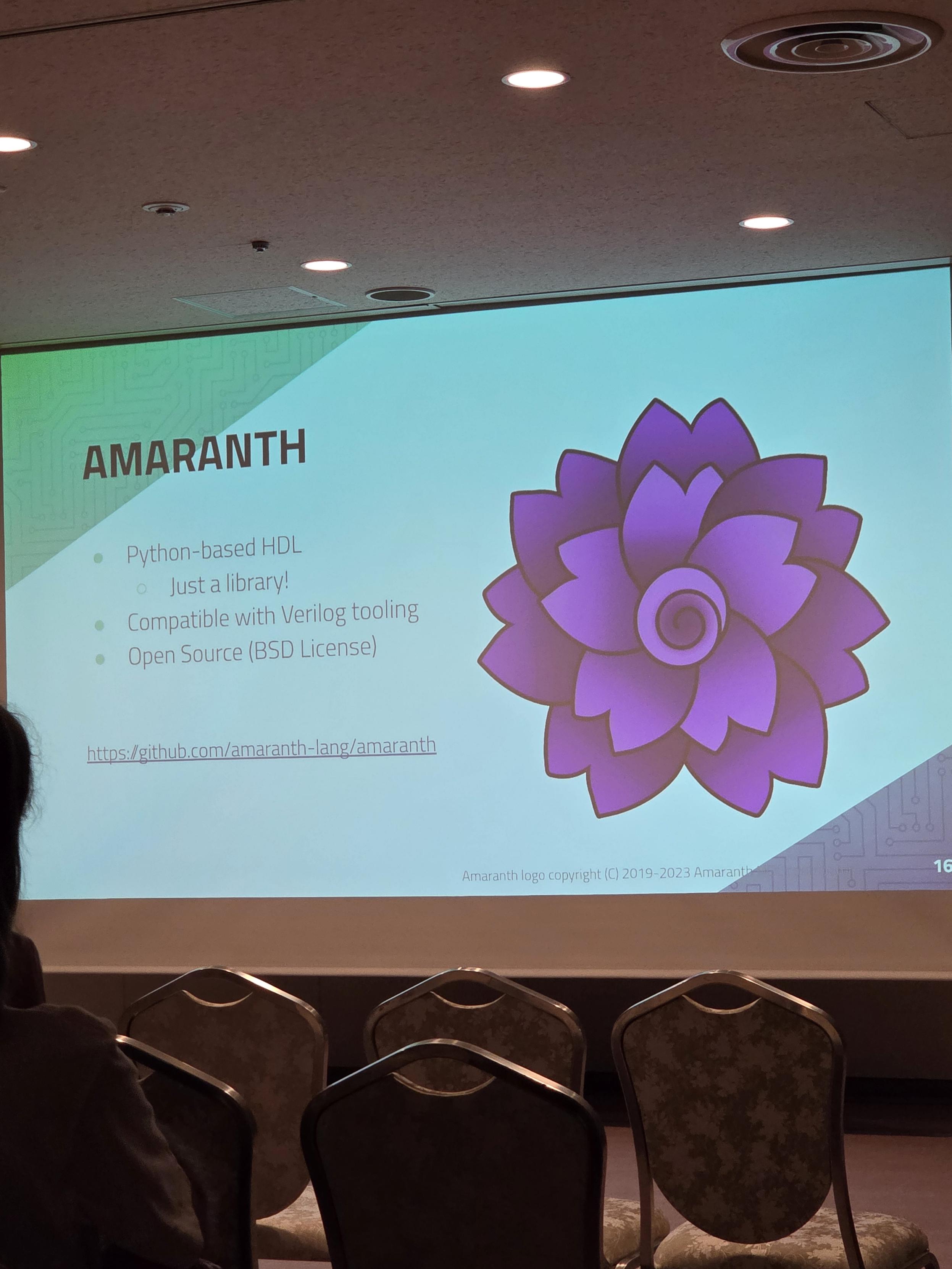
"How I Built a CPU for Fun (and Didn't Learn Verilog)": This session presented the experience of developing a CPU using a Python-based DSL library (Amaranth) instead of HDLs like Verilog. During my undergraduate years, I only learned the theoretical aspects in logic circuit/computer architecture classes, unlike friends at other schools who had practical experience with HDLs like Verilog. Perhaps because of this, the session felt like a completely different world and was quite fascinating to me.
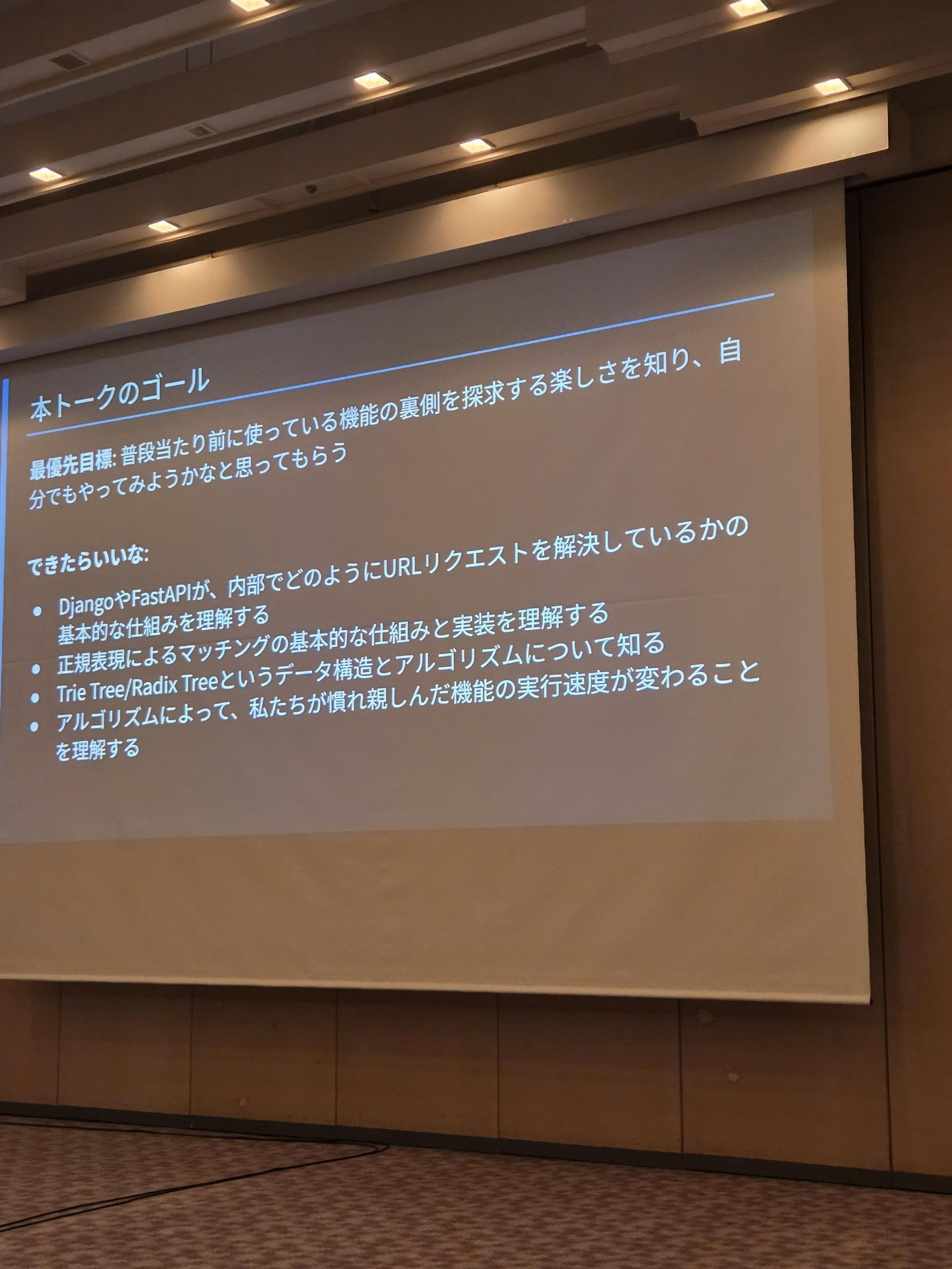
"Web Application Path Routing Algorithm Anatomy": I attended this session because I enjoy learning about the internal implementation principles of libraries and frameworks. It explained how routing algorithms work when processing the path field in request headers to provide responses, and introduced the advantages and disadvantages of VM-based and Trie-based approaches. Since it was in Japanese, I couldn't understand everything completely, but I attended to get ideas on how to approach and prepare for presentations. I'll probably watch it again when it's available on YouTube.
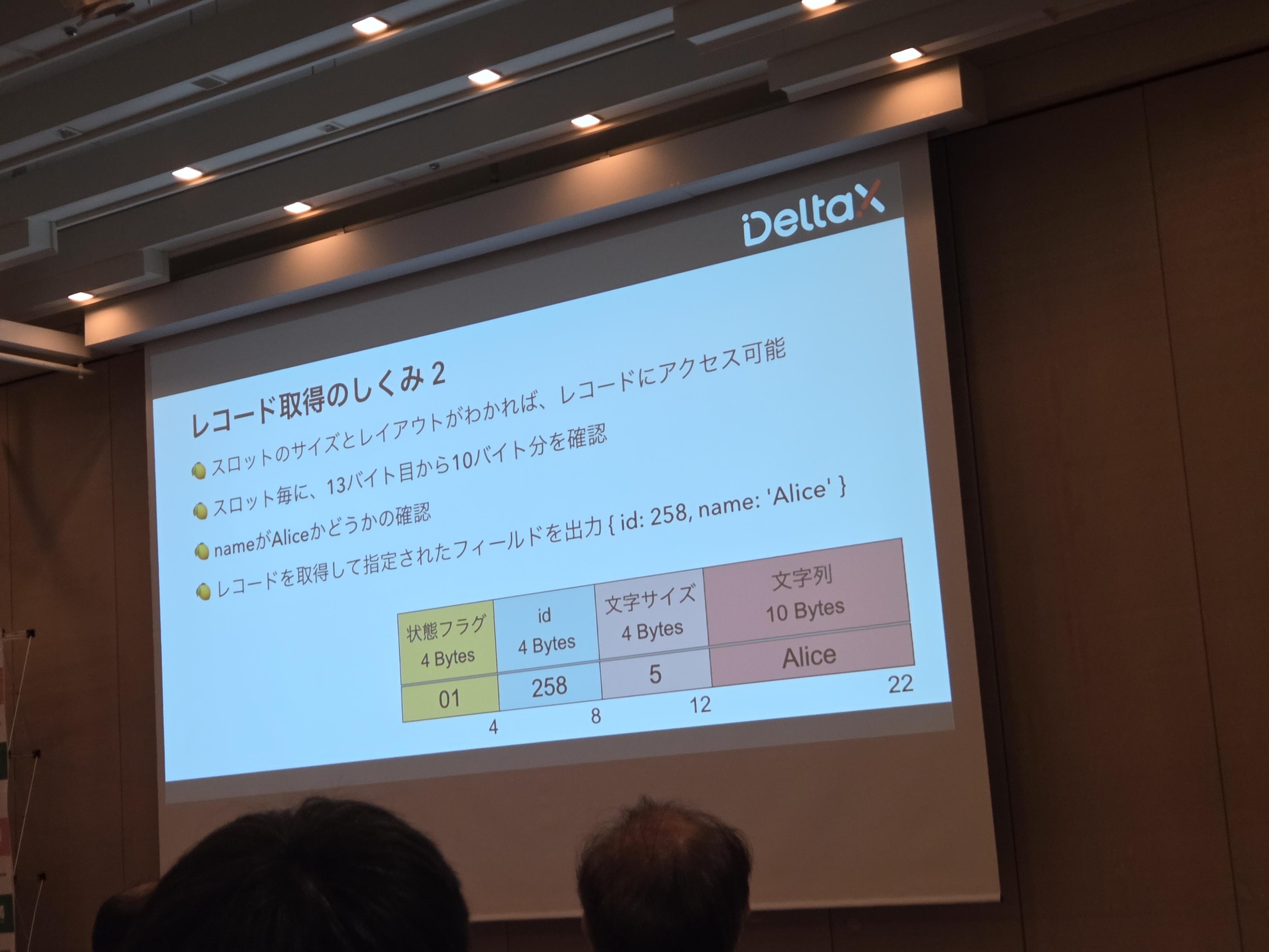
"Understanding Database Pieces with Python-based RDBMS: Tracing Internal Operations with Code Step Execution and Hex Viewer": This could be considered personal research. Literally, a web developer implemented a DBMS from scratch as a "side project" using Python, and explained step by step with code how it was implemented. The session introduced what components (Lexer, Parser, Planner, Buffer Manager, ...) make up a DBMS and how they were implemented. Seeing someone create something like this as a side project out of a desire to understand from the ground up made me reflect on myself. Meanwhile, I've just been looking for good textbooks...
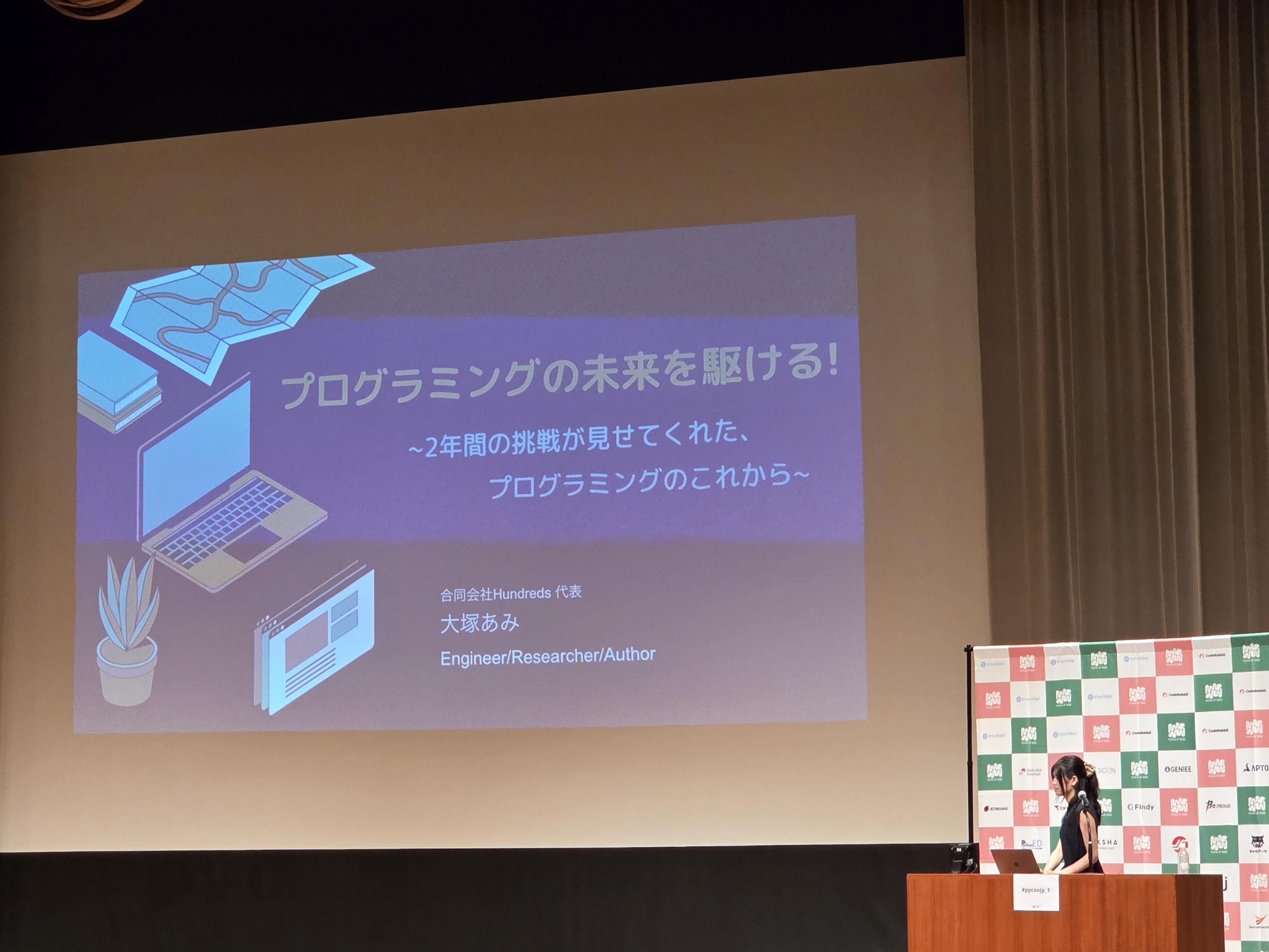
The Day 2 keynote speaker was Ami Otsuka, author of the book "100-Day Challenge". Overall, much of the content was familiar to me, covering the story from the book's publication to what happened afterward. (In truth, I missed many parts because I couldn't understand everything.) One change was that she started a one-person company around December last year and has been doing many interviews. As a young professional who hasn't been out of college for that long, her presentation really conveyed the traces of her hard work. Before the keynote, she did a "100-day challenge" and even launched an app on the App Store, which she demonstrated live during the keynote. Since I'm not an iPhone user, I couldn't try it. While reading "100-Day Challenge," I had many thoughts, but I definitely felt that "people who consistently take action are different." For a review thread of "100-Day Challenge," you can refer to this link.
In the evening, I went to a DrinkUp party hosted by PKSHA Technology. I had more energy than the previous day, but my Japanese still wasn't flowing smoothly. Fortunately, there was an engineer who frequently travels to Korea, so thinking "I should at least show my status as a Seoul restaurant expert," I marked a few recommended restaurants in Google Maps bookmarks for them.
As the DrinkUp party was ending, they were looking for people to join a karaoke after-party, so I experienced karaoke too. I showed them "how Koreans enjoy noraebang (karaoke)," and the response seemed positive. We played until around 1 AM before heading back.
Afterward (09/28)
The day after PyCon JP ended, a Sprint event was scheduled. Since Sprints are an essential part of PyCon, I had signed up for it. However, because I had so much fun at the Day 2 after-party, I arrived late at the Sprint venue around 11:30 AM. I didn't actively participate in the Sprint, but I observed how other tables were conducting their Sprints. In Korean terms, it's similar to "Mogakko" (Moyeo Gakja Koding - "gathering to code individually"), but there were some differences. Some tables were teaching how to contribute to open source, some were handling administrative tasks related to the event, and others were just doing whatever they wanted. I sat at a table where everyone was doing their own thing, observed for a while, then left with Kwonhan (darjeelingt) to tour Hiroshima.
In the evening, there was another after-party where I enjoyed some free beer. (Thank you very much, Takanori)
Overall Review
This was my first developer conference abroad since RubyKaigi 2023. While I enjoyed RubyKaigi too, this time I had a more meaningful experience by attending second and third after-parties and networking with other foreign developers.
There were several impressive points during my participation:
There was a lot of content available for foreigners. From the perspective of a foreigner who isn't very fluent in Japanese, the available option at a developer conference is to attend sessions in English. Locals can attend sessions in their native language, but foreigners often face language barriers. I knew that Japan has an excellent domestic environment where information is readily available in their native language, but PyCon JP had a significant number of sessions in English. There were even quite a few foreign speakers and organizers. In many ways, there was noticeable consideration for foreigners throughout the event.
There were sessions on relatively diverse topics. Like RubyKaigi, there were sessions where contributors directly explained library/core implementations. There were also sessions by a lawyer who developed his own editor, a medical physicist who built a community of 1,000 people, and someone who implemented an RDBMS in Python from scratch. While I've enjoyed PyCon KR over the years, there was definitely a different variety of content here.
There were many networking opportunities. Excluding arrival and departure days in Hiroshima, I think I networked almost every day. On Day 0, there was the Findy DrinkUp Party, on Day 1 the Official Party, on Day 2 the PKSHA DrinkUp Party, and there was even a networking party the day after. Since I wanted to meet more people while in Japan and was also considering job opportunities there, these were great opportunities. Thanks to these networking events, I was able to take a photo with tiangolo and even received a casual interview offer from a company. (Which one is a secret) + The second and third after-parties were also great.
If I participate again... (which I definitely plan to do no matter what)
- I need to bring a power bank.
- I need to bring a coin purse.
- I need to practice Japanese properly. (Duolingo had its limitations)
- But I wonder if there's a Discord server or similar where I can casually interact with Japanese developers? It would be nice if there were more Python developers.
- I also need to practice English to the point where I can converse fluently.
- I should definitely apply as a speaker. (If I find a job using Python...)
On the other hand, I also think "It would be nice if PyCon KR had more content that foreigners could enjoy." Even if we can't prepare event content, I think it would be fun to prepare a place where foreigners can mingle.
I'm Open to Contact
My experience at this PyCon JP was excellent, and I want to continue participating regularly. If I attend next time, I plan to go fully prepared. This time, six of us from Korea went as a group chat, but next time I'm thinking maybe 15 of us could go together. And I'd like to get to know more Japanese acquaintances.
- Email: jaeyeol.lee@hey.com
- X(Twitter): @kodingwarrior
- Fediverse:
 @kodingwarriorJaeyeol Lee,
@kodingwarriorJaeyeol Lee,  @kodingwarriorJaeyeol Lee (a.k.a. kodingwarrior)
@kodingwarriorJaeyeol Lee (a.k.a. kodingwarrior) 
- Instagram: @kokoko_kojima_
- Github: malkoG
Ah, I want to go to PyCon JP again.